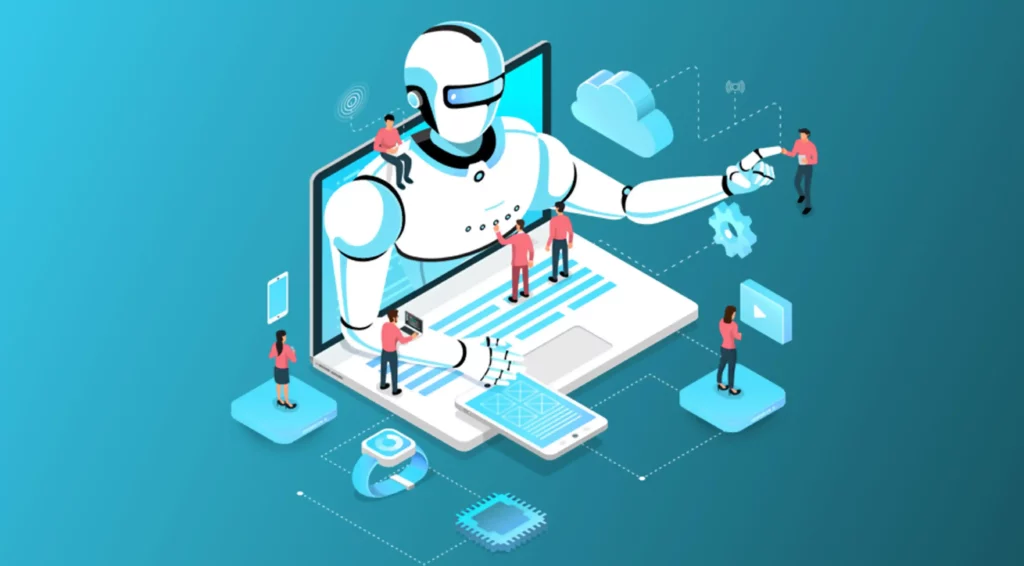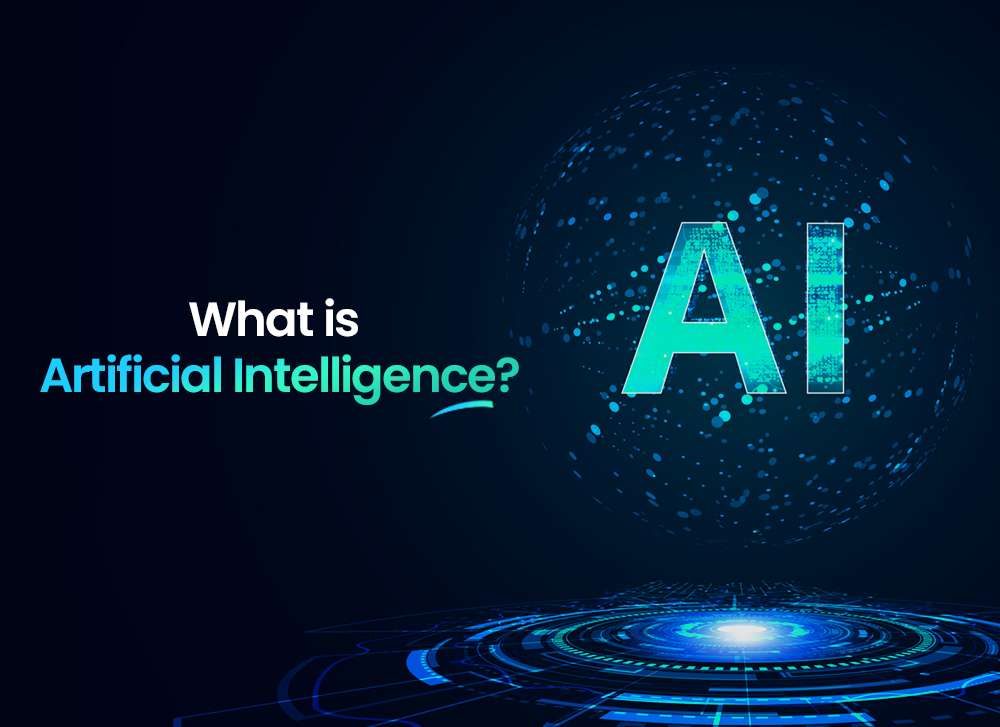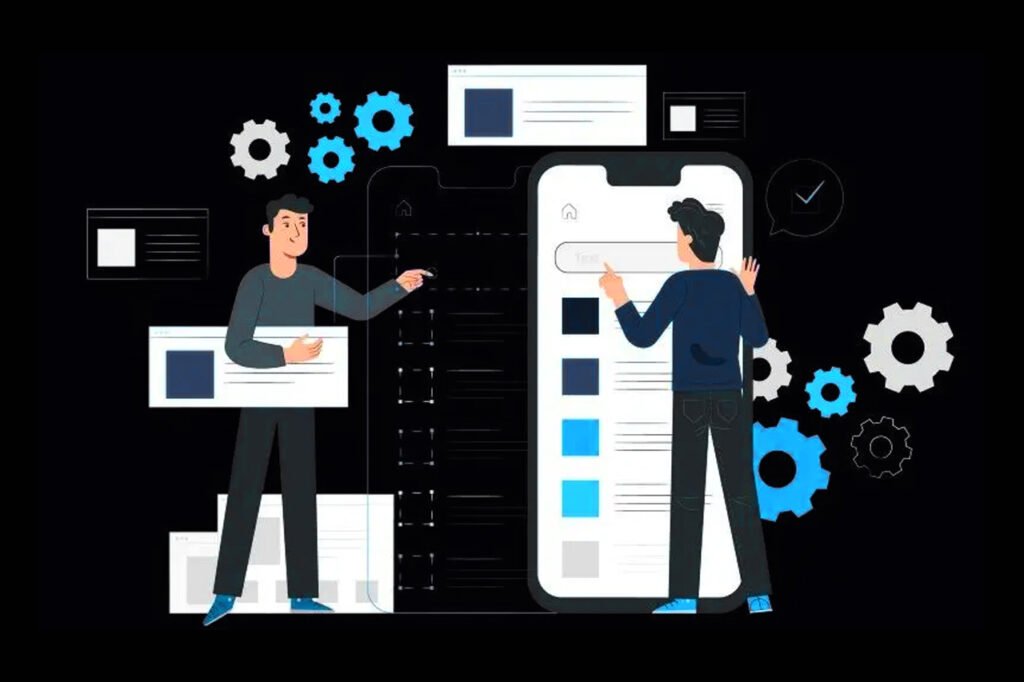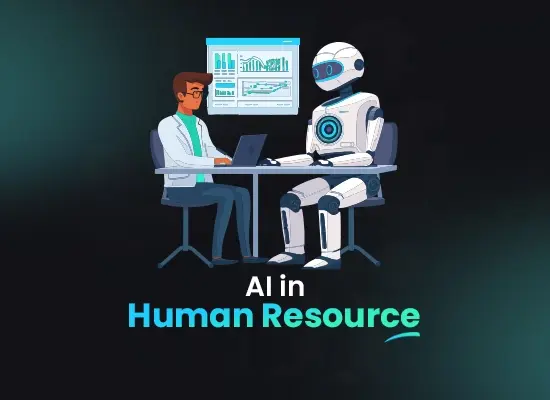AI in Customer Service – Automating Customer Experiences for Enhanced Performances

AI in Customer Service:
Customer service refers to the set of activities and interactions designed to meet the needs and expectations of customers before, during, and after a purchase. It is a crucial aspect of business that focuses on building positive relationships with customers by providing assistance, resolving issues, and ensuring their satisfaction.
Definition of Customer Service:
At its core, customer service involves addressing customer inquiries, concerns, and feedback to enhance their overall experience with a product or service. This can be delivered through various channels, such as in-person interactions, phone calls, emails, live chat, and social media.
Effective customer service goes beyond just resolving problems; it involves proactive efforts to understand customer preferences, anticipate their needs, and create a positive perception of the brand. Companies that prioritise exceptional customer service often build customer loyalty, gain repeat business, and foster positive word-of-mouth recommendations.
Customer service plays a vital role in building trust and maintaining a positive reputation for a business. It requires a customer-centric approach, effective communication skills, and a commitment to continuous improvement based on customer feedback and changing market dynamics.
What is AI in Customer Service?
Artificial intelligence in customer service refers to the AI integration technologies to enhance and streamline customer support processes. It involves the use of algorithms, machine learning, and natural language processing to automate and improve various aspects of customer interactions. One key application is chatbots, which are AI-driven virtual assistants capable of handling routine queries, providing information, and assisting customers in real-time.
Another aspect of artificial intelligence in customer service involves predictive analytics and data-driven insights. By analysing customer data, AI can help businesses anticipate customer needs, personalise interactions, and make proactive recommendations. This enhances the overall customer experience and increases satisfaction.
AI-powered tools also play a crucial role in automating repetitive tasks, such as ticket routing, categorization, and response generation. This efficiency allows human agents to focus on more complex issues that require emotional intelligence and problem-solving skills. Additionally, AI can facilitate self-service options for customers, empowering them to find solutions independently.
Overall, artificial intelligence in customer service aims to optimise efficiency, reduce response times, and provide a more personalised and seamless experience for customers, ultimately leading to improved customer satisfaction and loyalty.
Customer Service Automation:
Customer service automation refers to the use of technology and automated processes to streamline and enhance customer support activities. It involves employing various tools and systems to automate routine tasks, interactions, and responses, reducing the manual workload for customer service representatives.
One key aspect of customer service automation is the use of AI chatbots and virtual assistants. These AI-driven programmes are designed to engage with customers in real-time, answering frequently asked questions, providing information, and even resolving simple issues without human intervention. This helps in delivering quick and efficient support, improving overall customer satisfaction.
Additionally, customer service automation involves the implementation of self-service portals and knowledge bases. Customers can access these resources to find answers to their queries, troubleshoot problems, or get information about products and services without having to interact with a live agent.
Customer service automation not only accelerates response times but also allows businesses to allocate human resources more strategically. By automating routine tasks, organisations can focus their human workforce on more complex and value-added aspects of customer support, ultimately leading to a more efficient and cost-effective customer service operation.
What is The Common Customer Service Automation Software?
Customer service automation software refers to a category of tools designed to streamline and automate various aspects of customer support. These platforms leverage technology, such as artificial intelligence (AI) and chatbots, to enhance efficiency and provide a more seamless customer experience.
One common type of customer service automation software is chatbot software. Chatbots are AI-driven programmes that interact with customers in real-time, answering frequently asked questions, guiding users through processes, and even resolving simple issues without human intervention. They are often integrated into websites, messaging apps, and other communication channels.
Another key component is ticketing and help desk software. These platforms automate the process of tracking, managing, and resolving customer inquiries. They allow support teams to organise and prioritise customer tickets, ensuring that issues are addressed promptly and efficiently.
Knowledge base software is also part of customer service automation software. These tools create centralised repositories of information, enabling customers to find answers to their questions independently. This reduces the workload on support agents and empowers customers to resolve issues on their own.
Overall, customer service automation software aims to enhance responsiveness, reduce manual workload, and improve the overall efficiency of customer support operations. The combination of chatbots, ticketing systems, and knowledge base tools contributes to a more effective and streamlined customer service process.
Seamless Collaboration | Cost-Efficient Solutions | Faster Time-to-Market

Types of Customer Service Automation Software:
AI has a lot to offer in terms of improving customer service. It can help teams automate routine questions, give round-the-clock assistance, and free up time for more intricate and individualised interactions. Here’s a closer look at some of the several AI-powered solutions that can help you improve customer support processes.
Chatbots driven by AI:
- Chatbots with AI capabilities are becoming more and more popular as first-line customer service tools.
- They are able to comprehend user needs, draw lessons from previous contacts, and respond quickly to frequently asked questions by clients.
- Your company may handle large amounts of requests without adding more human resources by implementing AI chatbots.
- Reduce wait times and improve the customer experience by responding to customers right away.
- Concentrate on more difficult jobs that call for assistance from others.
Automated procedures and operations:
- Routine chores like creating tickets and entering client data can be readily automated using AI. These instruments lessen the need for manual involvement, which allows them to:
- Reduce the possibility of human error.
- Streamline and expedite the customer service process.
- Enhance the general experience of customers.
- Assist in overseeing customer service logistics, such as allocating responsibilities according to the difficulty or type of issue.
Processing of Natural Language (NLP):
- The ability of natural language processing (NLP) algorithms to read and comprehend human language significantly enhances AI’s capacity to manage consumer interactions. NLP allows you to:
- Improve your comprehension of client complaints and inquiries.
- Give more precise answers.
- Examine both positive and negative comments left by customers.
- Generate AI voice responses for consumer inquiries.
Introducing AI Technology to Your Customer Support Staff:
Your customer care team’s efficacy and efficiency can be significantly increased by implementing AI tools. This is how to successfully implement AI capabilities in your company.
Evaluate your objectives and needs:
You should consider your desired results and company demands before choosing AI technology. Here are some important queries to think about:
- Which particular problems and duties in customer service do you want to solve with artificial intelligence?
- What objectives do you have for customer service boosted by AI?
- What metrics—like higher customer satisfaction, more effective support staff, or quicker response times—will you use to gauge success?
You’ll have a clear knowledge of your goals and the qualities to search for in an AI tool by providing answers to these questions.
Select the appropriate platform for you:
There are a lot of AI solutions for customer care on the market, each with a different set of features and applications, as you saw in the previous section.
Include the tool in your current workflow:
Integrating the programme into your current workflows is the next step after selecting your perfect AI product.
Benefits of AI in Customer Service:
Artificial intelligence in customer service offers numerous benefits, enhancing the overall customer experience and streamlining business operations. Here are key points highlighting these advantages, among other benefits of AI in customer service:
1- 24/7 Availability:
AI-powered customer service systems enable businesses to provide round-the-clock support. Virtual assistants and chatbots can handle inquiries at any time, ensuring prompt responses and improved customer satisfaction. So far, this has been among the wonderful benefits of AI in customer service.
2- Cost Efficiency:
Implementing AI in customer service can significantly reduce operational costs. Automated systems handle routine queries, allowing human agents to focus on more complex issues. This leads to increased efficiency and cost savings for businesses.
3- Quick and Accurate Responses:
When it comes to the benefits of AI in customer service, AI technologies, such as natural language processing (NLP), enable chatbots to understand and respond to customer queries with speed and accuracy. This results in quicker problem resolution and a more seamless customer experience.
4- Personalization:
AI allows businesses to analyse customer data and preferences, facilitating personalised interactions. Customer service platforms can tailor responses and recommendations based on individual histories, improving customer engagement and loyalty.
5- Scalability:
AI systems can easily scale to handle a high volume of customer inquiries simultaneously. The benefits of AI in customer service can be that scalability ensures businesses can efficiently manage increased customer interactions during peak periods without compromising service quality.
6- Data Analysis and Insights:
AI tools can analyse vast amounts of customer data to extract valuable insights. Businesses can gain a deeper understanding of customer behaviour, preferences, and pain points, leading to informed decision-making and targeted improvements.
7- Reduced Wait Times:
AI-driven chatbots can instantly engage with customers, reducing the need for them to wait in queues for human assistance. This not only improves customer satisfaction but also contributes to a more efficient support process. Businesses use the benefits of AI in customer service to gain an edge over their rivals.
8- Multichannel Support:
AI allows businesses to provide consistent support across various communication channels, including chat, email, social media, and more. This ensures a unified customer experience, regardless of the platform customers choose for interaction.
9- Proactive Issue Resolution:
AI can predict and identify potential customer issues before they escalate. Through data analysis and pattern recognition, businesses can proactively address concerns, preventing dissatisfaction and fostering a positive relationship by implementing the benefits of AI in customer service.
10- Enhanced Employee Productivity:
AI-powered tools assist human agents by automating repetitive tasks, allowing them to focus on complex problem-solving and customer interactions. This boosts employee productivity and job satisfaction within the customer service team.
What are some Examples of AI in Customer Service?
We have compiled some examples of AI in customer service that are currently being used by most of the organisations and businesses around the world. Let’s discover the capabilities of modern artificial intelligence in customer service.
1. Examples of AI in Customer Service - Chatbots and Virtual Assistants:
- AI-powered chatbots and virtual assistants are widely used in customer service to provide instant responses to customer queries.
- These systems leverage natural language processing (NLP) to understand and respond to customer inquiries, improving efficiency and accessibility.
2. Examples of AI in Customer Service - Automated Ticketing Systems:
- AI is employed in automated ticketing systems to categorise and prioritise customer issues based on their content.
- This helps streamline the support process by directing tickets to the appropriate departments or agents, reducing response times.
3. Examples of AI in Customer Service - Personalised Customer Interactions:
- AI algorithms analyse customer data to personalise interactions and recommendations.
- This enhances the customer experience by providing tailored suggestions and solutions, increasing customer satisfaction and loyalty.
4. Examples of AI in Customer Service - Predictive Analytics for Issue Resolution:
- AI-driven predictive analytics forecast potential customer issues and proactively address them.
- By identifying patterns and trends in customer behaviour, businesses can preemptively resolve problems and minimise service disruptions.
5. Examples of AI in Customer Service - Voice Recognition Systems:
- AI-powered voice recognition systems facilitate hands-free customer interactions through voice commands.
- These systems enhance accessibility and convenience, allowing customers to navigate services using voice prompts and receive spoken responses.
6. Examples of AI in Customer Service - Sentiment Analysis:
- AI is used for sentiment analysis to gauge customer feelings and opinions based on their interactions.
- Businesses can assess customer satisfaction in real-time, enabling them to adjust their strategies and address concerns promptly.
7. Examples of AI in Customer Service - Virtual Agents for Routine Tasks:
- AI-driven virtual agents handle routine and repetitive tasks, such as account inquiries or order tracking.
- This frees up human agents to focus on more complex issues, improving overall efficiency in customer support operations.
8. Examples of AI in Customer Service - Fraud Detection and Prevention:
- AI algorithms are employed to detect and prevent fraudulent activities in customer transactions.
- By analysing transaction patterns and identifying anomalies, businesses can safeguard customer accounts and financial information.
9. Examples of AI in Customer Service - Language Translation Services:
- AI facilitates real-time language translation in customer service interactions, breaking down language barriers.
- This ensures effective communication between businesses and customers from diverse linguistic backgrounds.
10. Examples of AI in Customer Service - Continuous Learning:
- AI systems in customer service continuously learn from interactions and feedback, adapting and improving over time.
- This iterative learning process enhances the system’s ability to provide accurate and relevant information to customers.
Seamless Collaboration | Cost-Efficient Solutions | Faster Time-to-Market

Future of AI in Customer Service:
The future of artificial intelligence in customer service is poised to revolutionise the way businesses interact with their customers, offering enhanced efficiency, personalisation, and satisfaction. AI-powered chatbots and virtual assistants are becoming increasingly sophisticated, capable of understanding and responding to customer queries in real-time. This not only reduces response times but also allows businesses to handle a large volume of inquiries simultaneously.
Machine learning algorithms enable AI systems to analyse customer data and predict preferences, enabling a more personalised and tailored customer experience. This level of personalisation enhances customer satisfaction by providing relevant information and solutions. Additionally, AI can automate routine and mundane tasks, allowing human agents to focus on more complex and emotionally nuanced interactions, ultimately improving the overall quality of customer service.
The integration of natural language processing (NLP) enables AI systems to understand and interpret human language, facilitating more natural and context-aware interactions. This fosters a seamless communication experience for customers, making them feel heard and understood. AI-driven sentiment analysis further aids in gauging customer emotions, helping businesses proactively address issues and prevent potential dissatisfaction.
As technology advances, the future of artificial intelligence in customer service may also include the incorporation of emerging technologies such as augmented reality (AR) and virtual reality (VR). These technologies can enhance customer support by providing visual assistance and immersive experiences, particularly in industries like e-commerce and technical support. See some of the latest trends for the future of artificial intelligence in customer service.
- Currently, 20% of customer service operations use AI. Artificial intelligence in customer service has a bright future ahead of it; by 2025, it will lead the way and facilitate about 95% of consumer interactions.
- The market for conversational AI is currently valued at $10.7 billion and expanding at a rate of 22% per year.
- By 2030, the market for conversational AI is projected to be worth $32.6 billion. By 2028, the market for conversational AI is predicted to triple.
- AI will drive 95% of consumer interactions by 2025.
- The most prevalent application of AI in business today is chatbots.
- Before contacting a customer support representative, 81% of consumers would rather use a self-service alternative. To resolve their problems, the majority of customers typically use three to five customer support channels.
Conclusion:
In conclusion, the integration of artificial intelligence (AI) in customer service has revolutionised the way businesses interact with their clientele. AI technologies, such as chatbots and virtual assistants, have significantly enhanced efficiency by automating routine tasks and providing instant responses to customer queries. This has led to improved customer satisfaction and increased operational efficiency for businesses.
Furthermore, the ability of AI systems to analyse vast amounts of data has empowered organisations to gain valuable insights into customer behaviour, preferences, and trends. This data-driven approach allows businesses to tailor their services and products to better meet customer expectations, ultimately fostering stronger customer relationships.
However, it is essential to strike a balance between automation and the human touch in customer service. While AI excels at handling routine and repetitive tasks, human agents remain crucial for complex problem-solving, emotional understanding, and building genuine connections with customers. The successful integration of artificial intelligence into customer service requires a thoughtful and customer-centric approach.
Looking ahead, the continued advancements in AI technology hold the promise of even more sophisticated and personalised customer interactions. As businesses embrace these innovations, they must remain mindful of ethical considerations, data privacy concerns, and the need for ongoing human oversight to ensure a harmonious blend of AI and human elements in customer service. Ultimately, the journey towards an AI-powered customer service landscape offers immense potential for improved customer experiences and sustainable business growth.
The future of artificial intelligence in customer service holds tremendous potential to elevate customer experiences, streamline processes, and improve overall business efficiency. Embracing these advancements allows companies to stay ahead in a competitive market while delivering more personalised and responsive customer service.

Author Bio
Syed Ali Hasan Shah, a content writer at Kodexo Labs with knowledge of data science, cloud computing, AI, machine learning, and cyber security. In an effort to increase awareness of AI’s potential, his engrossing and educational content clarifies technical challenges for a variety of audiences, especially business owners.







